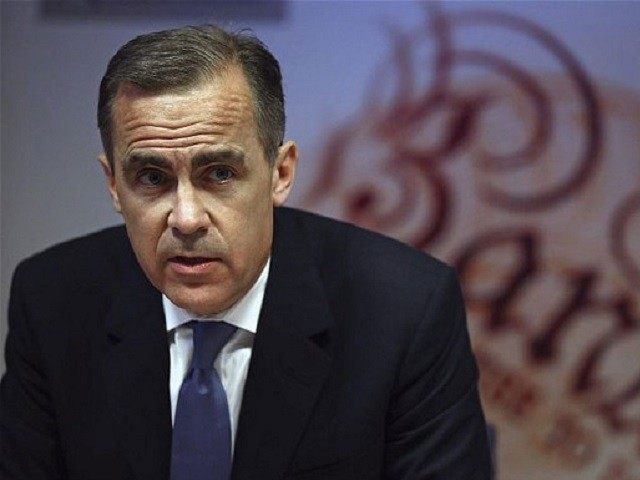The Global Warming Policy Foundation has published a transcript of an exchange between Lord Lawson and Bank of England governor Mark Carney at the House of Lords Economic Affairs Committee.
Three things are clear.
1. The Canadian import Carney cannot speak intelligible English, only evasive, flannelly CorporateSpeak.
2. Under Carney’s leadership, the Bank of England has joined the long, long list of institutions speaking well above their pay grade on the climate change issue, which it is palpably obvious they do not understand.
3. Carney, like his greenie activist wife, has bought wholesale into the climate change scare, can barely conceal his lofty contempt for those, such as Lord Lawson, who are not “with the programme”, and thus feels under no obligation to justify his position because he’s right, damn it, all the world’s climate experts say so….
Here’s the exchange:
Lord Lawson: Last week, the Deputy Head of the PRA – which is part of the Bank of England – gave a speech to an insurance conference in which he warned them of the huge risk from their fossil fuel investments. I’m puzzled for two reasons.
The first is that the International Energy Agency, which is the most highly regarded forecaster in this sector, forecast that over the next 25 years fossil fuel demand – so far from collapsing – is likely to increase. That’s their central forecast. So, the first question is what does the Bank of England know that the International Energy Agency doesn’t know about the energy sector?
The other is, although the economy is now doing very much better, there are a whole lot of remaining problems in the financial sector – some of which you alluded to in your opening statement others of which we’ve discussed this afternoon. Wouldn’t it be better if you focused your attention on those instead of engaging in green claptrap?
Dr Mark Carney: It’s absolutely essential that we discharge our responsibilities to protect policy holders of the insurance industry. In the property and casualty business, in the re-insurance business, one of the top risks is climate change. That is the assessed risk of those institutions with money on the line. Understanding those risks, making sure they are properly reserved, making sure the potential tail elements are properly understood – because insurance is very much about the tails – is absolutely essential to discharge our responsibilities to oversee and supervise the third largest insurance market in the world, which is one of the strengths of the City of London.
So, the question of the potential impact of climate change on the safety and soundness of the insurance industry and therefore its ability to honour its policy obligations is fundamental to the supervision of it. We have committed to undertaking a review of that and it will be published and can be judged accordingly, and given the strength of the UK insurance industry as a whole, it could well be the case that following that review that it’s adequately provisioned and anticipated and contingencies are in place. But we have a responsibility to run that down.
The last point I’ll make is in terms of so-called stranded carbon where you led, which is less of a direct insurance point. It could be through investments but the climate issue is more about the liability side in my view. The issues there are around proper disclosure, more full reporting in terms of the exposures – or the reliance if you will – of companies on certain types of assets and the extent to which industries are valued on multiples of those types of assets. There could be an adjustment but the actual adjustment – and I’ll leave with this point – in this regard and where it comes to financial stability is a product not of climate change per se but Government policy because of its changes to – I’ll simplify it – the price of carbon, which could have an impact on the value of those assets that are embedded in some balance sheets. Those are questions for parliament and I would say from a financial analytic perspective it’s an issue of transparency in that last regard.
Note that rather desperate appeal to authority in that first paragraph. Carney is utterly ill-equipped to counter Lawson’s no-nonsense accusation that he is “engaging in green claptrap” – not least because he has been engaging in green claptrap – so instead he defers to the apparently expert opinion of the insurance industry.

COMMENTS
Please let us know if you're having issues with commenting.